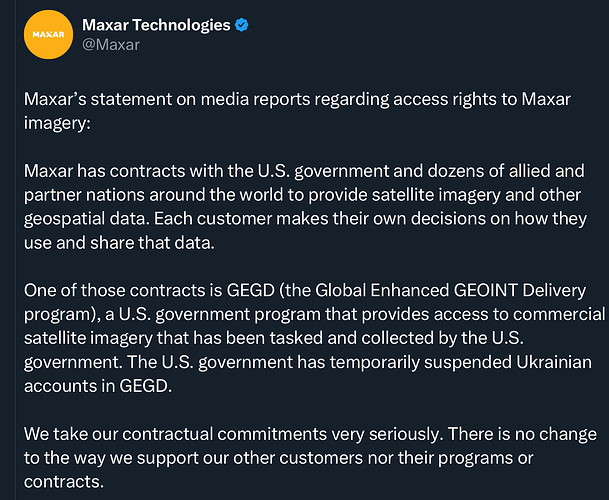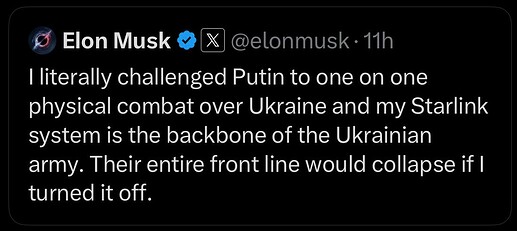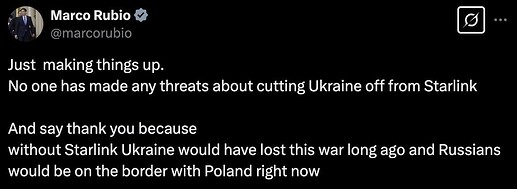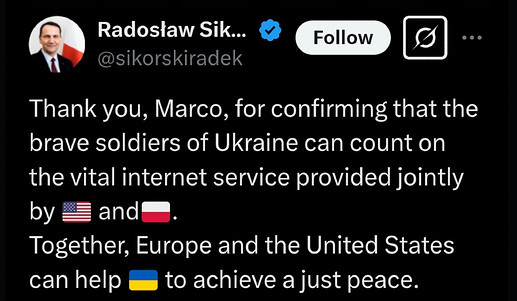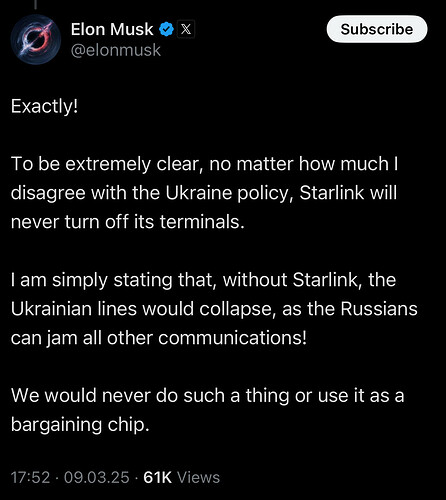Tempo fa era uscita la notizia che SpaceX avesse “spento” Starlink in Crimea durante un’offensiva ucraina per evitare che venisse colpita la flotta russa del Mar Nero, notizia che era emersa dalla biografia di Musk, confermata e poi ritrattata dall’autore della stessa, infine contestata da Musk e SpaceX.
Reuters ha pubblicato nei giorni scorsi un lungo articolo con parecchi dettagli su quella che sembra essere un’altra vicenda di “spegnimento” di Starlink, questa volta avvenuta durante l’offensiva di terra verso Kherson nel 2022.
 Musk ordered shutdown of Starlink satellite service as Ukraine retook territory from Russia
Musk ordered shutdown of Starlink satellite service as Ukraine retook territory from Russia
According to three people familiar with the command, Musk told a senior engineer at the California offices of SpaceX, the Musk venture that controls Starlink, to cut coverage in areas including Kherson, a strategic region north of the Black Sea that Ukraine was trying to reclaim.
“We have to do this,” Michael Nicolls, the Starlink engineer, told colleagues upon receiving the order, one of these people said. Staffers complied, the three people told Reuters, deactivating at least a hundred Starlink terminals, their hexagon-shaped cells going dark on an internal map of the company’s coverage. The move also affected other areas seized by Russia, including some of Donetsk province further east. […]
As a result, the Ukrainian military official and the military advisor said, troops failed to surround a Russian position in the town of Beryslav, east of Kherson, the administrative center of the region of the same name. “The encirclement stalled entirely,” said the military official in an interview. “It failed.”
Ultimately, Ukraine’s counteroffensive succeeded in reclaiming Beryslav, the city of Kherson and some additional territory Russia had occupied. But Musk’s order, which hasn’t previously been reported, is the first known instance of the billionaire actively shutting off Starlink coverage over a battlefield during the conflict. The decision shocked some Starlink employees and effectively reshaped the front line of the fighting, enabling Musk to take “the outcome of a war into his own hands,” another one of the three people said.
Anche l’articolo conferma che si tratta di una vicenda differente da quella già salita alle cronache nei mesi passati.
The Kherson episode is distinct from an earlier report of an incident that purportedly occurred that same September, involving Crimea just to the south, and raised concerns about Musk’s ability to influence the conflict in Ukraine.
Per un riassunto dell’episodio legato alla Crimea si veda l’articolo già segnalato in precedenza:
 Did Elon Musk Turn Off Starlink Access in Crimea To Disrupt Ukrainian Attack?
Did Elon Musk Turn Off Starlink Access in Crimea To Disrupt Ukrainian Attack?
On Sept. 7, 2023, major U.S. news outlets, including CNN and The Washington Post, reported that SpaceX CEO Elon Musk had personally ordered access to the company’s Starlink satellite internet service “turned off” or “shut down” in Russia-occupied Crimea to disrupt a planned Ukrainian military attack there. The incident took place in 2022.
![]() visto il regime di moderazione stretta - chiudo qui cedendoti eventualmente l’ultima parola.
visto il regime di moderazione stretta - chiudo qui cedendoti eventualmente l’ultima parola.